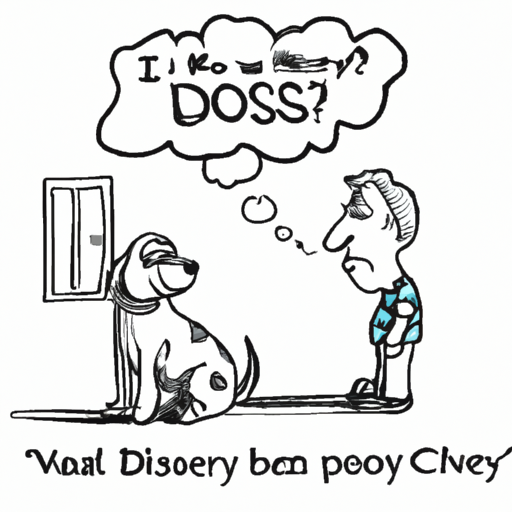1. Understanding Your Dog’s Behavior
As a caregiver, you may often wonder about the peculiar behavior of your four-legged friend. One such behavior is the excessive licking of paws. This could seem like a harmless act, but it’s essential to understand that this could be a sign of underlying health issues.
Dogs lick their paws for several reasons, and it’s crucial to observe and understand the context. Sometimes, it may be a simple act of grooming, but other times, it might not be as innocuous.
2. Common Reasons for Excessive Paw Licking
There are several reasons why your dog might be licking their paws excessively. Some of the common reasons include:
-
Allergies: Dogs can be allergic to a variety of substances, from food to environmental factors like pollen or dust mites. These allergies can cause itching and discomfort, leading your dog to lick their paws.
-
Pain or Discomfort: Dogs often lick areas of their body that are in pain. If your dog is continuously licking a particular paw, it might be a sign of an injury, arthritis, or other painful conditions.
-
Anxiety or Boredom: Dogs, like humans, can experience stress, anxiety, and boredom. Excessive paw licking can be a self-soothing behavior, just like how some people bite their nails when anxious.
| Common Reasons | Signs to Look For |
|---|---|
| Allergies | Redness, swelling, or hot spots on the paws |
| Pain or Discomfort | Limping, difficulty moving, or changes in behavior |
| Anxiety or Boredom | Increased licking when alone or under stress |
3. Dealing with Excessive Paw Licking
Your approach to addressing your dog’s excessive paw licking will depend on the underlying cause. Here are some steps you can take:
-
Identify the Cause: Pay close attention to your dog’s behavior and look for any potential triggers. This could be a new food, a change in environment, or signs of stress.
-
Consult a Vet: If you’re unable to determine the cause or if your dog’s paw licking is causing distress or harm, it’s time to consult a vet. They can help identify any underlying health issues and recommend treatments.
-
Provide Mental Stimulation: If anxiety or boredom seems to be the cause, providing your dog with plenty of mental stimulation can help. This could include toys, puzzle games, or interactive playtime.
4. Preventative Measures
Preventing excessive paw licking can be challenging, but these strategies might help:
- Regular grooming to remove potential allergens from your dog’s fur and paws.
- Providing a balanced diet to avoid food allergies.
- Regular exercise and mental stimulation to prevent boredom and anxiety.
5. Frequently Asked Questions (FAQs)
Q: Is paw licking normal for dogs?
A: Yes, occasional paw licking is normal and usually part of their grooming behavior. However, excessive licking could indicate an underlying issue.
Q: Can I stop my dog from licking their paws?
A: It’s not always possible to stop a dog from licking their paws, but understanding the cause and addressing it can reduce the frequency.
Q: When should I consult a vet?
A: If your dog’s paw licking is causing distress, pain, or harm, or if it’s accompanied by other concerning symptoms, it’s time to consult a vet.
Remember, as a caregiver, you play a crucial role in your dog’s wellbeing. Understanding their behavior and seeking professional help when needed can ensure that your furry friend leads a healthy, happy life.



